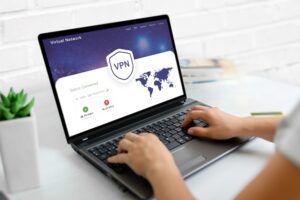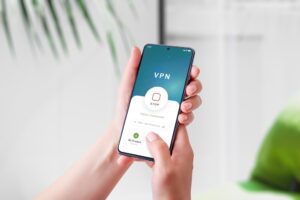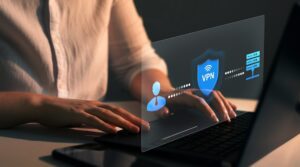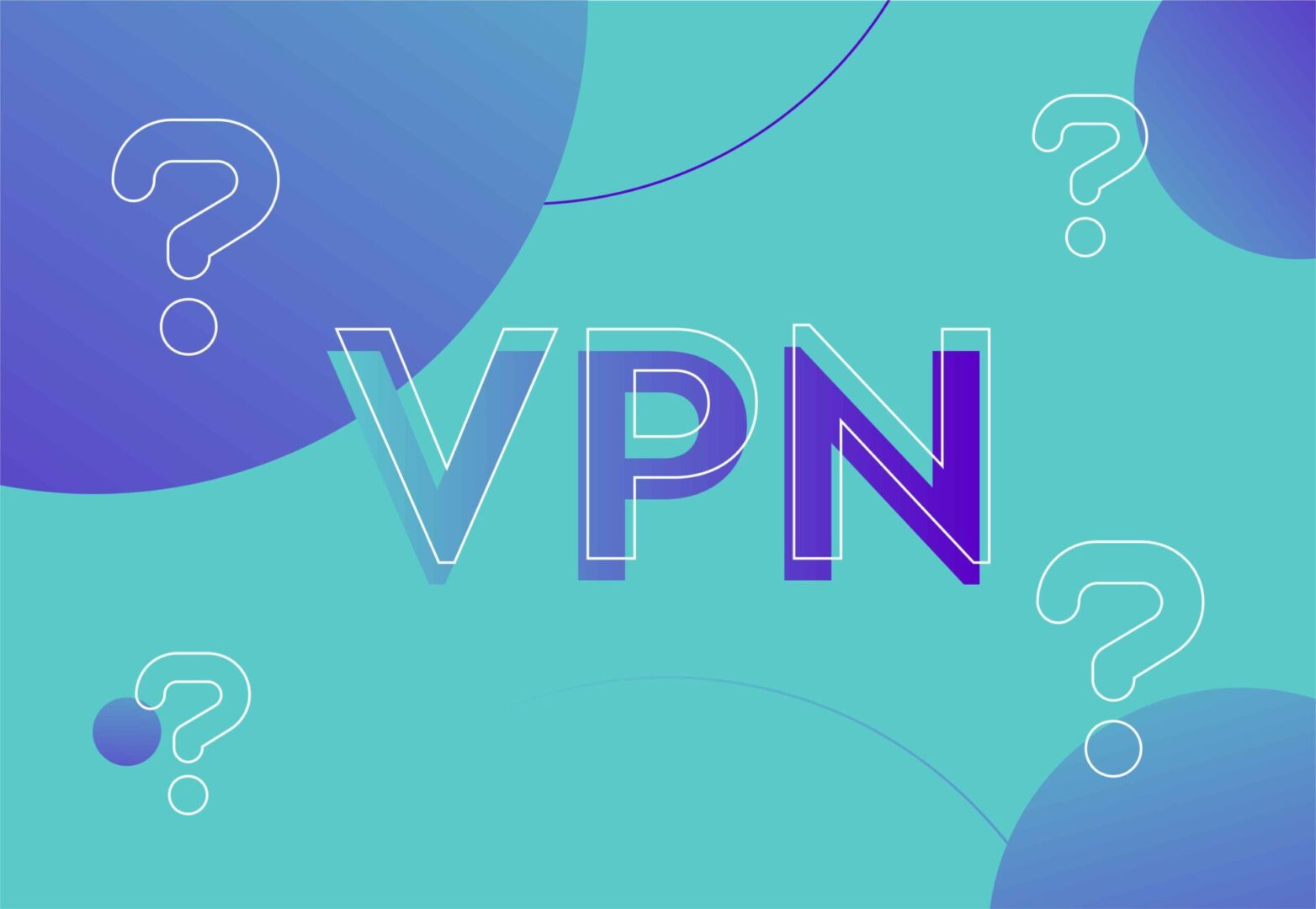Most people will have come across the term ‘VPN’ in their day-to-day lives, but would you know what it is they do?
Recent research from Forbes tells us that around 23% of Brits have no idea what a VPN is or how it works, with men seemingly having a deeper understanding than women on the subject.
VPN stands for ‘virtual private network’, but what is a VPN and how does it work? The tech experts here at Embryo dive into the inner workings of VPNs, the different types available and their benefits in our latest blog. Let’s take a look!
What is a VPN and what does it do?
A VPN, or ‘virtual private network’, establishes a secure, encrypted connection to keep your personal data safe while browsing, as well as hiding your location, IP address and browsing history from potential hackers.
With UK adults spending 76% of their waking hours online, privacy when browsing has never been more important, meaning VPNs are only going to keep growing in popularity. In 2022, the global market size for VPNs came in at almost $49 billion, while it’s estimated to reach $358 billion by 2032.
When using a public network connection, such as WiFi, you’re potentially exposing your personal data to third parties who could try to use it maliciously. Unsecured connections are often targeted by cybercriminals to attempt to steal information for identity theft. With 77% of people being concerned with how their data is used online, it’s more important than ever that we protect ourselves when browsing or entering our details online.
A VPN creates a private connection to give you protection and anonymity using encryption, so even if someone were to access the data you send and receive via your VPN, it wouldn’t make any sense so it would be completely useless.

Remote, site-to-site, and mobile: Three common types of VPN connection
There are a variety of VPNs available, but there are three main types.
Remote access VPN (or Client-to-site VPN)
Remote access VPNs are used for exactly that – remote access to a network. This type of VPN is commonly used by businesses whose staff work remotely and need to access the company network, files and resources whilst working from home or a location other than their main office. It allows staff to ‘dial in’ to the company network using a secure connection and use their computer as if they were sitting in the office without the risk of data being breached or stolen.
This usually involves either a VPN client or app being installed on the computer or laptop so that the secure connection can be established directly through the VPN provider, or access via a web browser using assigned login credentials. In a recent Forbes survey, 24% of respondents said they use a VPN because they are required to for remote working.
Remote access VPNs can also be useful for personal use when it comes to browsing the internet securely and anonymously, and avoiding content blocks and firewalls.
Site-to-site VPN
Site-to-site VPNs are mainly used within large organisations as they enable private, internal connections between multiple networks, therefore connecting a number of offices or locations to one central office, using their Local Area Networks (LAN) to connect to the Wide Area Network (WAN).
This allows for the sharing of essential resources over one network, such as data storage or email servers, and enables all users to access the server as if they were in one office. Site-to-site VPNs also allow companies to limit access to areas of their network or resources, for instance, if they were sharing certain parts with a company outside of their own organisation but didn’t want to share all of their data with them.
Mobile VPN (apps)
Data from Forbes shows that around 40% of those surveyed use a VPN on their smartphone. Mobile VPNs are useful for smartphone users who travel or don’t have a stable internet connection, but wish to keep their data secure. As long as the app is running, your data is protected, even with patchy internet access or if you’re switching between WiFi and mobile data.
A VPN could be key for protecting payment information or personal data used regularly or saved on your mobile device. Various VPN apps are available from the Apple App Store or Google Play.

How does a VPN work?
Once you’ve entered the correct authentication data, your VPN provider will connect you to their remote server and create an ‘encrypted tunnel’ for your data to run through. The data is encrypted – therefore scrambled – and can only be read by those with access to the encryption key.
It allows you to access the internet through a secure connection, rather than through your usual Internet Service Provider (ISP), meaning your ISP and other third parties are unable to see the data you send and receive online, your IP address, location or which websites you’re visiting.
Essentially the connection runs through the VPN server instead of your ISP, leaving you protected from outside parties.
What are the benefits of a VPN?
The main benefit of using a VPN on a personal level is online security from cyber criminals who might try to steal your personal information, with SurfShark claiming that security is the top reason users purchase a VPN, but let’s delve a little deeper into the other perks:
- Remote working – Following the covid pandemic, the rise in home or remote working has grown exponentially. Back in 2019, only 4.7% of UK employees worked remotely, whereas in 2024, around 48% of employees work remotely at least part of the week. VPNs have allowed remote working to become more of a ‘norm’ than it was pre-pandemic, allowing users to access office resources, files and servers securely from home.
- Prevent tracking by your ISP and other third parties – By using a VPN, your IP address is hidden from your Internet Service Provider, meaning it’s unable to log or track your browsing history. Without a VPN, this data could potentially be sold to a third party or left vulnerable in the case of a data breach.
- Access or stream local content from other areas or countries – Some sites may restrict what you’re allowed to view based on your geographic location. As your location is hidden with a VPN, these restrictions are lifted.

Safety first: keeping your data secure
If you’re looking for a way to securely browse the internet or allow your employees to work from home with access to your company systems or files, a VPN could be a great solution. Keeping your personal data or company information safe from cyber criminals should be a high priority in this digital age so it’s important to stay up to date with the latest security services available to you.













